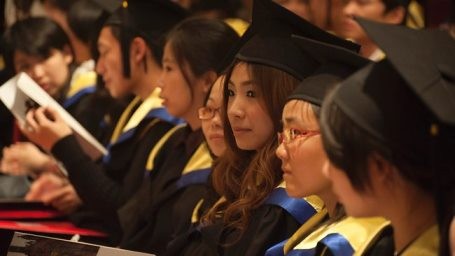A recent survey revealed that majority of Chinese parents who intend to send their children overseas to study are the ones considered “successful” in the society. Most of them are senior-level leaders or higher from various sectors and industries.
This is according to a white paper released by the Beijing-based overseas study consultancy Vision Overseas on Thursday. The group is part of the New Oriental Education and Technology Group.
The survey included over 700 parents who consider overseas study for their children. A large 42 percent of the respondents were senior leaders, while 20 percent were heads of organizations, companies or enterprises.
These individuals are hailing from wide-ranging industries and sectors, including state-owned and private enterprises, government agencies, institutional organizations and joint ventures.
The paper stated that "regardless of which field or sector they are working in, sending children to study abroad has become a consensus among the parents."
"Studying abroad is no longer a privilege of students from rich families," Vision Overseas vice president Yu Zhongqiu remarked, adding that even working-class families are now gaining financial capacity to send their children abroad for academic purposes.
In China, studying abroad has gained popularity during the recent years.
According to Ministry of Education statistics, 460,000 Chinese students went abroad in 2014 for study, a big jump from the figure in 2000, which only tallied up to 39,000.
Meanwhile, the paper also showed that a mere 5 percent of the parents went abroad for study because of the period where they grew up.
"Many of these parents were born in the 1960s or 1970s, and the opportunities to study abroad were scarce because of the social and economic conditions prevailing in China at the time they grew up," the paper explained.



























